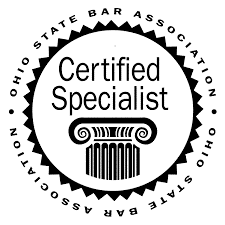Paid Coronavirus Sick Leave and Emergency FMLA FAQs
posted by Neil E. Klingshirn | March 19, 2020 in FMLA/Medical Leave
|
Q |
Who is entitled to receive Emergency Paid Sick Leave (Paid Sick Leave) benefits? |
| A |
Beginning on or about April 1, 2020, employees who work for employers with fewer than 500 employees can receive Paid Sick Leave if they cannot work due to:
|
| Q |
Does that include public employers as well as private employers? |
| A |
Generally, yes, although there are some special rules for certain public employers. Check with an employment lawyer if you are not sure. |
| Q |
I cannot work at my office or plant. Can I still collect Paid Sick Leave if I can do my job working from home? |
| A |
No. You must be unable to work or telework to receive emergency Paid Sick Leave. |
| Q |
I just started my job a week ago. Do I have to accrue Paid Sick Leave before I can use it? |
| A |
No. If you are otherwise eligible for Paid Sick Leave, you can use all of it right away. |
| Q |
How much Paid Sick Leave do I get? |
| A |
You are entitled to up to 10 days of paid sick leave, for the number of hours that you were regularly scheduled to work. If you are salaried, you will receive up to 80 hours of Paid Sick Leave. |
| Q |
What is the amount of paid sick leave? |
| A |
Paid Sick Leave is paid at your regular rate of pay. However, it is capped at $511 a day if you cannot work due to a quarantine for your COVID-19 illness or you have COVID-19 symptoms and are seeking a medical diagnosis. It is capped at $200 a day if you cannot work because you need to care for a quarantined individual or children at home due to a coronavirus closure. For example:
|
| Q |
Is there any paid leave after I use up my emergency Paid Sick Leave? |
| A |
Yes. You can receive emergency paid Family and Medical Leave (Paid FMLA Leave), but only if:
There is a public health emergency right now. Therefore you can receive Paid FMLA Leave if you meet the other three conditions. If you cannot work due to your own illness, you can take FMLA leave, but it will not be paid. |
| Q |
How much is Paid FMLA Leave? |
| A |
Paid FMLA Leave is paid at your two thirds of your regular rate of pay but is capped at $200 per day. |
| Q |
How long can I receive Paid FMLA Leave? |
| A |
You can receive up to 10 weeks, or 50 days of Paid FMLA Leave, again at the number of hours you were regularly scheduled to work. |
| Q |
My employer’s FMLA policy says I must use my vacation and paid time off when I take Family Leave. Does that mean I have to use my employer provided paid time off before I use Paid FMLA leave? |
| A |
No. Under the Emergency FMLA Paid Leave Act, you can take Paid FMLA Leave as soon as you’re eligible for it, unless you elect to use employer paid time off first. That is, your employer cannot require you to use up employer paid leave first. |
| Q |
My company employs fewer than 50 employees, which means I am not entitled to normal FMLA coverage and have no guarantee that I can return to work after my need for leave ends. Will I be able to return to work at the end of a coronavirus related leave? |
| A |
Yes, unless your position no longer exists because of coronavirus related changes where you work, like the elimination of your position, your employer tries but fails to return you to an equivalent position and your employer makes reasonable efforts to contact you during the following year if an equivalent position becomes available. |
| Q |
I am glad that I will be able to receive Paid Sick Leave and Paid FMLA leave but it seems like it will put a big burden on my employer. How will my employer be able to pay for this new benefit? |
| A |
Employers will be entitled to a tax credit for qualifying Paid Sick Leave and Paid FMLA Leave. Employers can apply this credit to the payroll taxes that they withhold from your pay, as well as the payroll taxes that they must match for your pay. After that they can file with the IRS for any unreimbursed Paid Sick Leave or Paid FMLA Leave, which the IRS will treat as a tax refund.
|
Related Articles
- Appellate Court Provides Alternative Cause of Action for Procedurally Barred ADA ClaimsWhile workers employed by government entities and their agencies are subject to the Americans with D...
- The Pregnant Workers Fairness Act: A Necessary Protection for Expectant WorkersThe U.S. legal system has various policies in place to protect workers' rights and ensure fair t...




